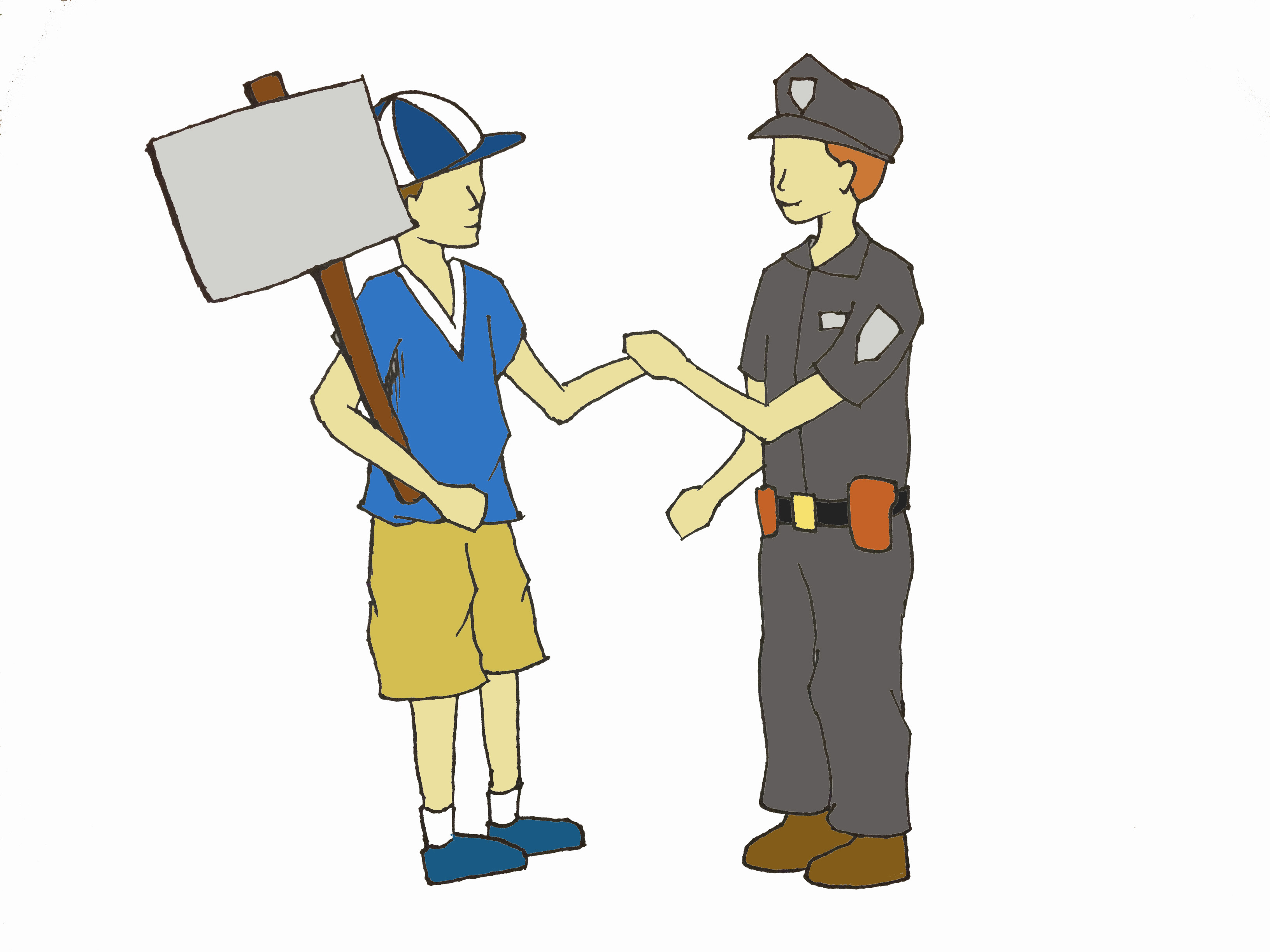The recently released “Response to Protests on UC Campuses” report shows a great deal of potential in regard to reforming how the UC handles demonstrations on campuses.
While the report, released on May 4, was not the first analysis made in the wake of the UC Davis pepper spray incident, it is by far the most holistic and comprehensive series of suggestions presented to the public. Should UC administrators choose to implement the report’s suggestions quickly and seriously, the events of last winter may finally be put to rest.
But in order to do so, the UC must choose to actively involve community members outside the police and administration in the decisions being made to reform policy, in hopes of both rebuilding trust and gaining new perspectives on how to deal with demonstrators in the future.
The draft examines the ways in which the UC has previously handled demonstrations on campuses and offers 50 specific recommendations in nine areas as to how the university might better manage protests and increase communication between engaged parties.
Some of the most straightforward recommendations the report makes are those that relate to police training and hiring. Because police behavior was the source of much outcry, the report suggests requiring the chief of each police department to obtain input from community members in regards to the process for hiring and promoting new officers.
“Like all the other departments, we are reviewing the recommendations. We’re being really open-minded,” said Jeff Young, the assistant chief of police for UCPD at UCLA. “Since most of the changes have implications on a system-wide level, they’re going to take time and coordination.”
Since the report itself places a great deal of emphasis on community input, the best way the UC can seek to move forward is by choosing to include the actual people on the ground ““ the students, faculty and staff ““ in the reforming process.
On paper, the UC has chosen to do this by labeling the first copy of the report a “˜draft’ and setting up a website where the public can comment before a final copy is submitted to President Mark Yudof.
However, what the UC hasn’t done is publicize this detail. No emails have been sent to students or faculty in the UCLA community to notify them that the report is available for comment. And, while the report’s release is common knowledge among administrators, it is not among students.
Furthermore, while the report commission did interview hundreds of administrators about how to improve in the wake of the incidents last winter, only a little more than 60 students were consulted outside of townhall meetings ““ a problematic number if administrators are hoping to build bridges.
In preparing this report, UC Berkeley School of Law Dean Christopher Edley Jr. and UC General Counsel Charles Robinson held town hall meetings at Berkeley, Davis and Irvine. But what about the other campuses?
This year, the major demonstrations occurred on those campuses. But without system-wide input and trust, who is to say that there couldn’t be greater problems on the campuses they chose to overlook?
Rebuilding trust in the wake of on-campus police brutality isn’t just about dealing with the surface issues at one campus or another, it’s about re-involving students, faculty and staff to tackle the underlying problems facing the UC.
If the UC is willing to put in the work, there is a good chance that having a firm set of policies in place may deter certain activists from choosing to defy the law.
Lynn Tierney, associate vice president of communications for the University of California, said the Office of the President is currently reviewing the recommendations.
“The report pointed out solutions at all different kind of levels ““ mostly having to do with specific steps for improving communication,” Tierney said. “There’s been lots of discussion with chancellors, senior administrators and police about implementation. Things that can be implemented immediately will be.”
Since the report is still in the public comment phase, no actions have been taken yet. Naturally, the challenges lie with implementation. The UC has a chance to reevaluate its decisions in hopes of cultivating an environment that supports and sustains free speech.
Hopefully, an incident with the magnitude of that at UC Davis will never occur again. But that can only be achieved with diligence and a willingness to listen. The most effective way for the UC to immediately prove its commitment to the principles outlined in the draft is to actively generate feedback about the report itself.
Email Tashman at atashman@media.ucla.edu. Send general comments to opinion@media.ucla.edu or tweet us @DBOpinion.
